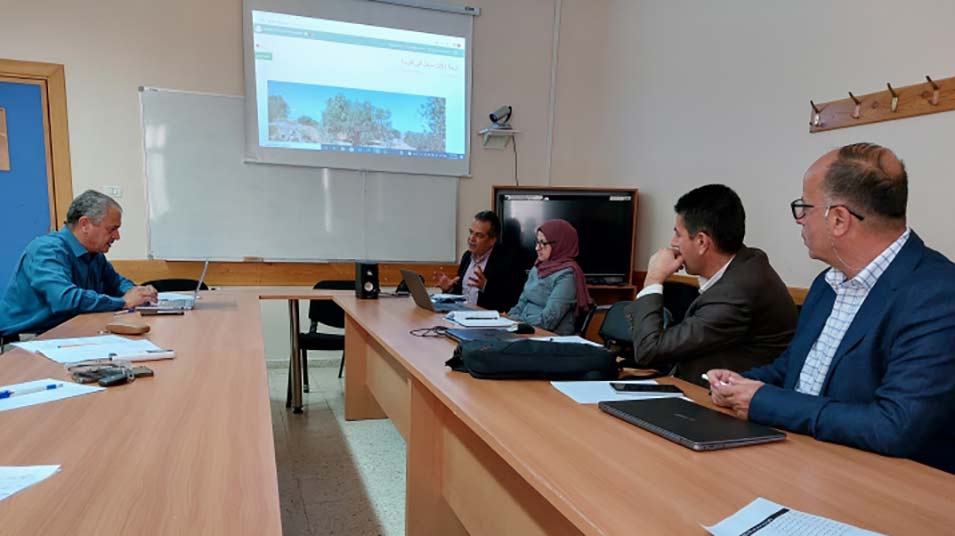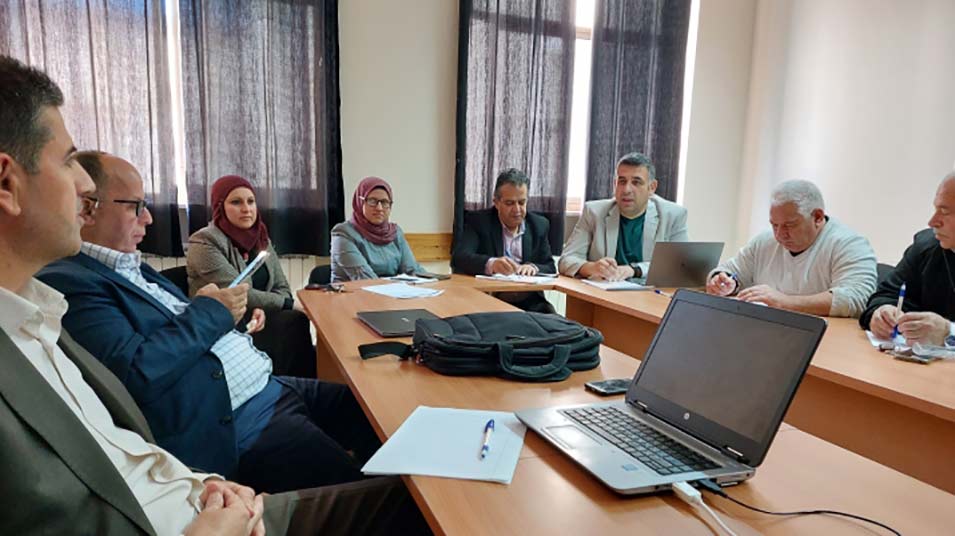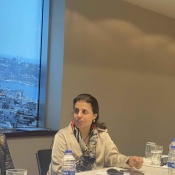Faculty of Education to integrate digital technologies in its education diploma
As part of its efforts to integrate digital technologies at Birzeit University, the Faculty of Education organized a series of workshops to digitize 24 courses taught at the faculty’s education diploma program.
The workshop is part of an ongoing project, titled “Teacher Education without Walls: New Models for STEM and Teacher Education in the Digital Age (project Olive),” funded by the Finnish National Agency for Education and the Ministry for Foreign Affairs in Finland.
Participating faculty discussed their working plan to digitize the courses, exploring approaches that integrate modern technologies and online learning tools. The participants ultimately created interactive content using a range of tools and other digital resources.
Dr. Ahmad Aljanazreh, head of the project and Birzeit University’s assistant vice president for Academic Affairs, inaugurated the workshop by emphasizing the importance of integrating technology into teaching, using new platforms and services that best serve pedagogical purposes. “In the era of digital transformations, especially after the pandemic, we have been experiencing new needs. Adopting digital technologies and integrating them into our teaching is vital to help us overcome the challenges that our education systems might face in the future,” stressed Aljanazreh.
Dr. Refa’ Al-Ramahi, dean of the Faculty of Education, said that the far-reaching impact of such projects is to improve and maintain the quality of education by bringing the information onto technology-supported environments.
Project Olive focuses on creating new online-learning environments by enabling students to access open educational resources. The project aims to transform education and equip teachers and students with the skills necessary to utilize modern technologies and online learning tools. In project Olive, professors develop expertise in STEM skills, as well as in the key competences for lifelong learning and skills highly useful in the 21st century: collaboration, problem solving, critical thinking, self-regulation and use of information and communication technologies (ICTs).








